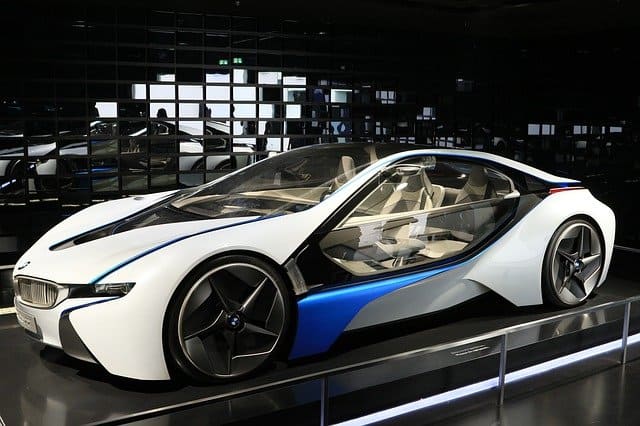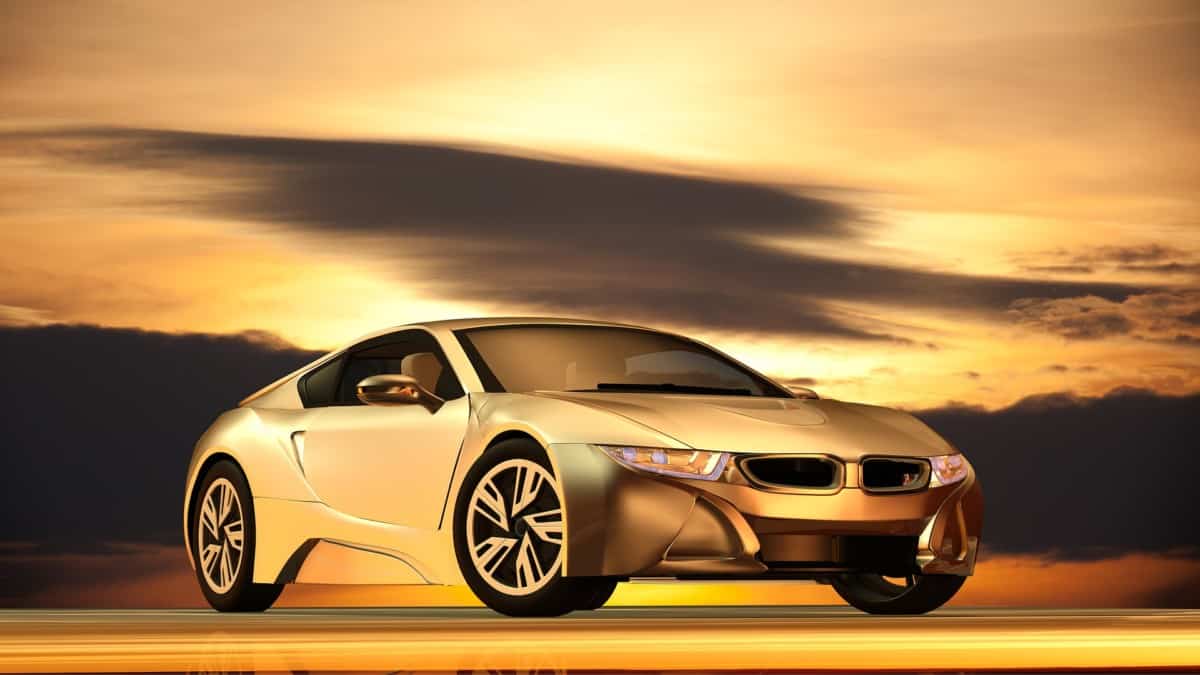The future of electric vehicles has already taken off. We now have more electric vehicles than 5 years ago. In the next five years, this number will also increase significantly.
It’s clear that vehicles running on petrol and diesel are still dominating in terms of global sales. But while these are good market signs for their manufacturers, the sales of EVs are also increasing on the other hand. So, are electric cars the future and what can we expect? Well, let’s find out.
Are Electric Cars the Future?
How soon is the future of electric cars? A research that was done by the Bloomberg New Energy Finance indicates (BNEF) that almost 58% of passenger vehicles that would have been purchased by 2040 will be from electric cars. At the same time, this number will make up less than 33% of all types of vehicles found on the road.
The same report by BNEF states that EVs will make up to 10% of sales of the global passenger vehicles by 2025. This number is expected to gradually increase and reach 30% by 2030 and by 2040, it will be 58%.
By 2040, EVs will be representing 31% of all cars found on the road. This mark will include 24% of light commercial vehicles, 47% of 2-wheeled vehicles, and 67% of municipal buses.
The future of these vehicles will be majorly driven by the Chinese and European markets. This is because they expected to have more sales and by 2030, both of them are expected to have around 50% EVs.
The future definitely looks promising in all aspects. There have been policies and campaigns implemented in different parts of the world to facilitate the adoption of EVs. For instance, China has an EV credit system, city policies, and fuel economy regulations while the European Union has CO2 regulations.
The Future of Electric Cars in the US
As a superpower, you would expect the US to be the top country where the adoption of these vehicles will be higher. However, this country is expected to have a slower level of adoption compared to china and Europe. So, which are the best states to own electric cars?
This is because the current projections show lots of limitations when it comes to the development of the charging infrastructure. At the moment, this country doesn’t have many factors that would indicate that it’s fast considering the adoption of EVS and related technology.
By using the current estimates, its margins will definitely be very low by 2030. However, there is still room for optimism. It should be noted that research reports indicate that most households in the US have two or more cars. Besides that, most of these households can easily install a home charging system.
This could work to its advantage if the right mechanisms are implemented at the moment. This feature can not only work for America but also a country such as South Korea. By 2022, we can expect almost 550 electric vehicle models from global auto manufacturers.
Note: the global projections are working in favor of EVs. However, how soon is soon? Well, we can say that the shift has already happened and in the next couple of years, the change will be massive.
Why Are Electric Cars the Future?
A report by the Society of Motor Manufacturers and Traders indicates that the number of hybrid o EVs were only 3500 in the UK in 2013. By April 2020, the number had increased to almost 300,000 EVs. There is definitely a shift. By why are EVs considered to be the future?
Environmental Impact
Climate change has been the biggest contributor to this shift. From time to time, we have come across news about climate change and new weather patterns plus the impact. Carbon emitted by the traditional vehicles that use petroleum products has been the biggest contributor to global warming.
The effect of this is air pollution that leads to respiratory diseases, extinction of certain species, and other climatic hazards. With numerous campaigns being launched on climate change, legislations have been implemented and now countries are trying to find ways to use to reduce global warming.
EVs will definitely be ideal in reducing emissions as they don’t produce any pollutants at all. By 2050 the UK, for instance, is expecting to reduce its emission by 80%. This can only be achieved if motorists have to use EVs because they can help to cut emissions by almost 40%.
Well, there’s no doubt that these vehicles play an important role in reducing the overall environmental impact of pollution.
Cost-Benefit
It’s another ideal reason that has led to increased purchasing of EVs. There are serious cost benefits that come with buying electric cars, especially for businesses with fleets. Switching to electric fleets means that a business would be eligible to grans in some countries.
If you are in the UK, the government can give you a grant of up to £4500 towards the purchasing of a standard electric vehicle. Besides that, there is a grant of up to £500 for the installation of an EV charging point.
It just doesn’t stop here. Those with this type of vehicle are also eligible for certain tax breaks in addition to reduced road costs because there is no fuel purchasing.
Reports indicate that a person driving an electric car for around 1000 miles will end up saving almost $150 compared to petrol cars. Some countries also have vehicle exercise duty exemptions. With such financial benefits, more people are expected to buy this type of vehicle in the future.
Corporate Social Responsibility
Firms have a role to play and it’s important that they demonstrate corporate social responsibility. The use of fleets that run on fuel is a serious environmental hazard. Besides that, the costs of purchasing fuel are usually higher.
Embracing such responsibilities means that firms are ready to own up and find better mechanisms to operate in. generally, switching to electric vehicles would lead to the creation of a clear positive front when it comes to social responsibilities. This is important for the brand’s reputation as well as its value among its closest competitors. As a result, it will be able to stay on top of the game.
Supportive Infrastructure
The low purchasing of EVs in the past was due to the lack of appropriate infrastructure. Looking back 5 years ago, it was almost impossible to find a charging station within a reasonable distance.
Charging, which is important for the running of EVs, proved to be a big problem. Many people saw this as an obstacle and they, therefore, refrained from purchasing such vehicles.
However, the infrastructure has quickly developed over the past few years. There are now thousands of charging points. This number is expected to increase in the next couple of years as more models are developed and supportive infrastructure implemented, plus charging at home may become more popular..
Future of Electric Cars

There are a lot of distinct features that future electric cars are expected to have. As technology continues to new trends getting established, it’s clear the future electric cars are almost here. Here is a rundown of some of the things to expect:
Improved Batteries
Batteries are among the most important components of electric cars. While the current batteries are great, there also need frequent recharging. In the past few years, the range of the batteries has increased. However, the charging times continue to remain stagnant or even reduce.
The future is however promising. At the moment, we have electric vehicles that can effectively hit the 200 miles distance while running on a single charge. It should be noted that Tesla Model S can now reach a maximum range of around 402 miles.
In the next couple of years, we can expect to have improved EVs with lasting batteries. Innolith Ag, a German Company, announced that it was developing a new type of battery that would allow an EV to reach a maximum range of around620 miles.
Note that this technology is expected to be commercialized by 2022. According to the manufacturer, this vehicle will use a non-flammable type of inorganic electrolyte.
This design is important in reducing the chances of flammability and consequentially the accidents resulting in fires. With such a battery type, future electric cars will be safer than the current ones.
The Humanitarian and Environmental Effects of EV Battery Production
Are electric cars the future and what does it mean to some people? Well, there’s no doubt that electric cars are here with us and it’s only a matter of when the massive shift will happen.
However, when it comes to producing certain EV components such as the vehicle, it’s also important to establish what their future will look like.
The battery production comes with some serious humanitarian and environmental crises. The batteries are usually made with cobalt and mining activities for this mineral are therefore expected to increase significantly.
More than 60% of the world’s supply of cobalt comes from Congo. However, this is one of the countries that has experienced serious war crimes due to this mineral and others. It means that if we are to produce quality batteries, then we have to look for more cobalt supply. This may eventually affect the locals, leading to more war issues.
Its, therefore, important for manufacturers to cut their dependency on cobalt for the production of EV batteries. Ethical sourcing is important and human rights abuses have to be eliminated from the supply chain. So, companies have to look for safer sources including recycling batteries.
Note: there is a direct environmental impact that comes with mining minerals. The use of chemicals to blast hard rock surfaces as well as the tremors caused by mining equipment can result in serious side effects to human beings, wildlife, plants, and marine life among others.
Wireless Charging
This is another area that we can expect to find improvements in the future. The current chargers come with cables and require the vehicle to be immobilized for some time while they are charging.
This is a big downside, especially to the usual motorists who are used to refuelling their vehicles in a couple of minutes and continuing with their journey.
To cut out the aspect of immobilization, wireless charging is the future. If this technology comes to fruition, then it would mean that the vehicle simply needs to be packed over a pad that’s placed on the earth’s surface. So, the vehicle will end up automatically charging without the need to get plugged in.
Note: there are tech firms that are working on wireless technology to ensure that the vehicle charges while it’s on the move. A design by tech giant Qualcomm indicates that a system can be designed to help charge EVs while they are running on top of the road at speeds that go up to 70 mph.
Hydrogen Fuel
Future motorists can also expect fuel-cell power that’s based on Hydrogen. Well, this is something that top vehicle brands such as Toyota, Honda, and Hyundai have invested their time and resources in, especially for the development of passenger vehicles.
While the focus is currently on electric cars, it’s also important to consider large haulage cars that need more fuel supply. The hydrogen power source has lots of advantages and it can be effectively applied for use with most electric cars. Its implementation will involve the use of a rapid charger that is hydrogen-powered.
The Bottom Line
Eves are the future and the future is already happening now. By the next decade, the number of EVs on hour roads would have increased by hundreds of thousands.
China and Europe are expected to have the biggest market share as they have policies and regulations that support the adoption of EVs. With the development of supportive infrastructure and improvement in key aspects such as battery life, there will be more refined models with a high level of efficiency.
EVs don’t just offer cost-benefit but they are also great for the environment. So, if we want to reduce the impact of climate change, it’s important that we implement regulations that facilitate the use of such vehicles.
Recent Posts
Understanding Energy and Electricity: The Power For Progress
Energy and Electricity Energy and electricity are integral components of modern life, powering everything from homes and businesses to transportation and communication. Without them, the...
The Future of Wind Energy The future of wind energy is set to play a critical role in addressing global energy needs while combating climate change. As renewable energy sources like wind and...


